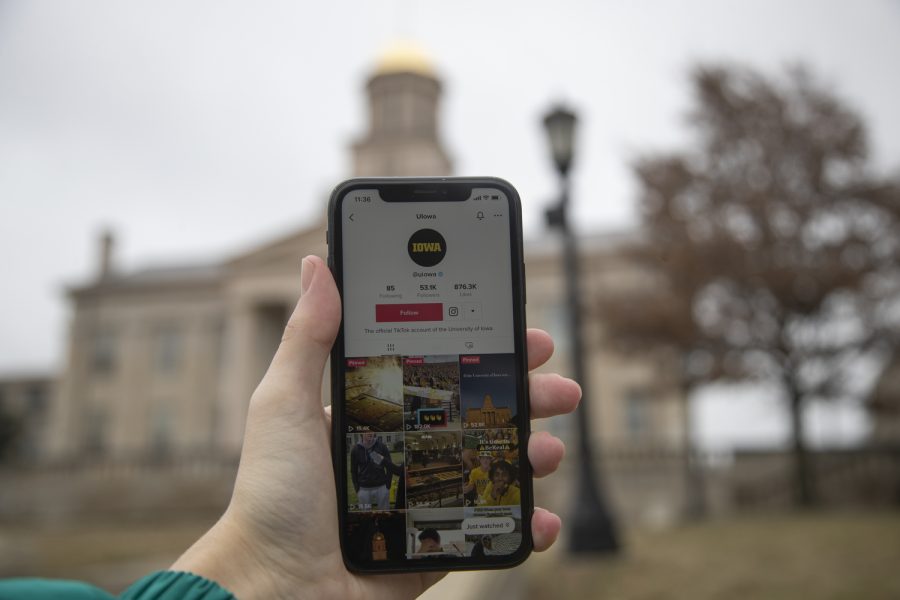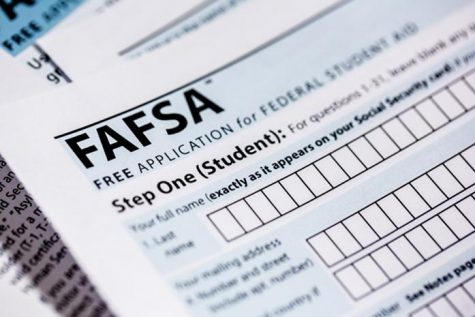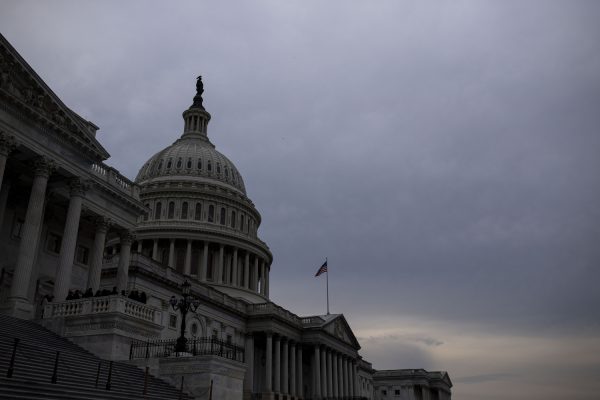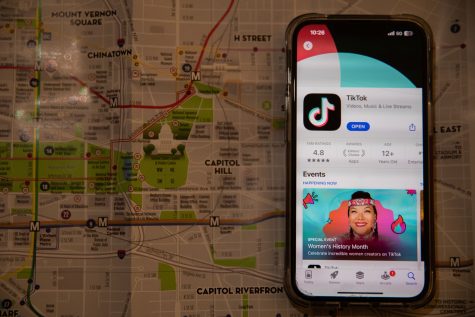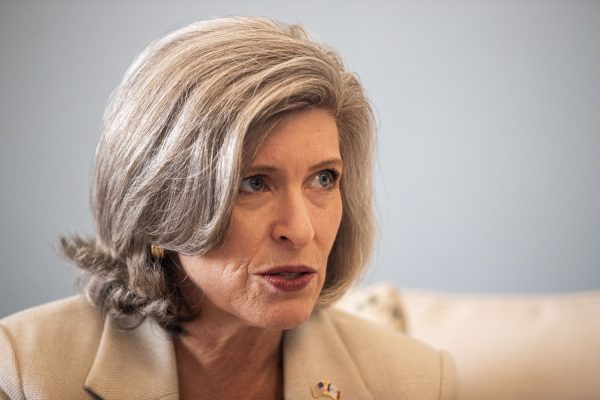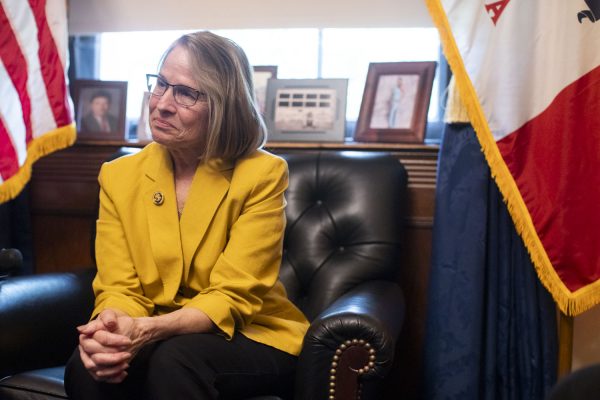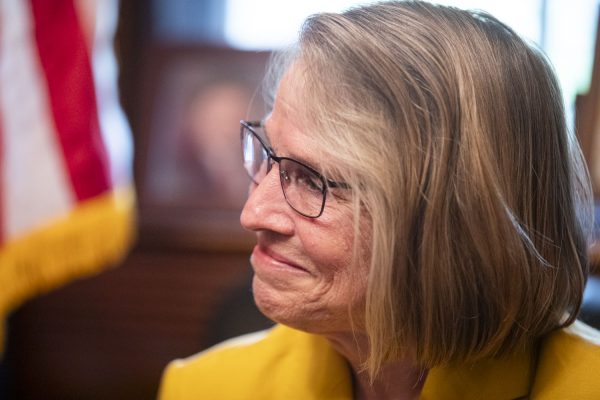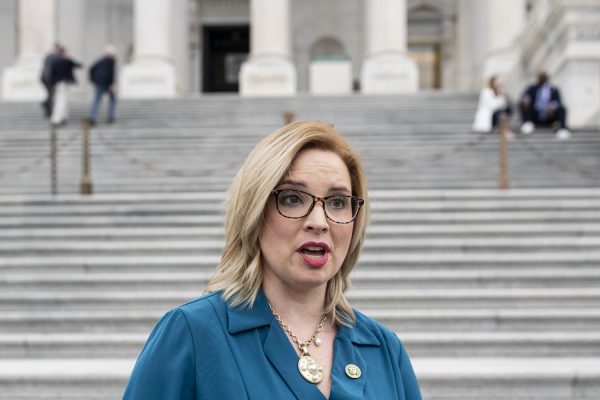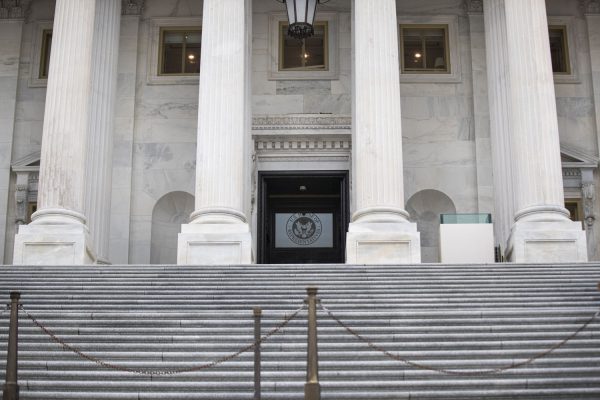Time may be up for TikTok
Iowa lawmakers express concerns about the social media giant. With over 150 million daily users nationwide, lawmakers are worried about the china based company’s implications on national security and its influence on young users.
University of Iowa TikTok page outside Old Capitol Building in downtown Iowa City Thursday, Jan. 19, 2023.
March 28, 2023
WASHINGTON D.C. — Iowa lawmakers are concerned about TikTok’s effects on national security, youth mental health, and its tenuous connection to the Chinese Communist Party.
The U.S. House Energy and Commerce Committee grilled CEO Shou Zi Chew during a hearing on TikTok’s operations in the U.S. and how it plans to solidify data protections for U.S. users last week.
Lawmakers questioned whether Bytedance, the parent company of TikTok based in Beijing, China, was allowing the Chinese government to access user data to spy on users.
Chew told lawmakers that the Chinese government does not interfere with TikTok’s operation and is “free from any manipulation from any government.”
During an interview with The Daily Iowan, Rep. Marianette Miller-Meeks, a Republican congresswoman representing southeast Iowa, said she still has concerns about the possible security risk the app poses with millions of users’ data collected and stored by TikTok. According to NPR, there are almost 150 million active users daily in the U.S.
“Most of the content that is shared from Tik Tok comes from U.S. subscribers, but you have data that’s turned over to the Chinese Communist Party,” Miller-Meeks said. “They track keystrokes, they collect credit card data, and they collect password information so all of this puts the U.S. at risk especially when it comes to national security. So, it is a data privacy issue.”
Under an updated Chinese law from 2021, Chinese-based companies have to turn over all user data to the Chinese government. The government has used the data to track vulnerable minorities and dissidents in China.
Another issue that Miller-Meeks mentioned about TikTok was that while there are age restrictions on the app, those restrictions are hard to enforce. These young users are fed information, Miller-Meeks said, that can be detrimental to their development.
“Walking across the street, someone stopped me and said I’ve got a 15-year-old I’m a parent of a 15 year old if you ban Tiktok, you and that would make me happy we don’t we don’t have it, but he accesses it with his friends who have tick tock on their phones,” Miller-Meeks said. “So, parents have a lot of concerns with tick tock and there have been a lot of complaints with that.”
Sen. Chuck Grassley, R-Iowa, said he doesn’t know if legislation preventing Tik Tok from operating in the U.S. will pass, but would support a ban against the social media platform if it ever came to vote.
Grassley said he’s not only worried about people’s privacy on Tik Tok but also if the information would go to the Chinese Communist Party.
“I think under our Constitution, your right to privacy is pretty important,” Grassley said. “And I ought to be concerned about it for other people, and I am concerned about it, but more concerned about national security and the extent to which China can get this information and what they do with it.”
Grassley also said he has concerns over potential threats to national security because of the social media app.
“We may not be absolutely certain, but there’s a feeling that they can use this tool to spy on Americans and what they do with the information,” Grassley said. “Maybe we don’t know now, but it ought to be a serious concern to any of us at the federal level, the government, because the number one responsibility of the federal government is to protect the national security of Americans.”



